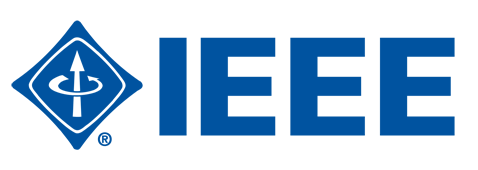[Welcome] [Submission] [Camera Ready Instructions] [Organization] [Program] [Keynote]
D-SPAN
2013


4th IEEE International Workshop on Data Security and PrivAcy in wireless Networks
In conjunction with IEEE WoWMoM 2013
Tuesday, June 4, 2013, Madrid, Spain
Submission website: http://edas.info/N14019



|
Keynote sponsor: |
 |
Welcome to D-SPAN 2013, the Fourth IEEE International Workshop on Data Security and PrivAcy in wireless Networks (D-SPAN). The workshop focuses on research developments related to data security and privacy in wireless and mobile networks. This workshop solicits papers from two main categories: (1) papers that consider the security and privacy of data collection, transmission, storage, publishing, and sharing in wireless networks broadly defined, e.g., MANET, cellular, vehicular, ad hoc, cognitive, and sensor networks; and (2) papers that use data analytics to address security and privacy problems in wireless networks. The workshop provides a venue for researchers to present new ideas with impact on three communities – wireless networks, databases, and security.
The list of topics includes, but not limited to,
• Secure Localization and location privacy
• Privacy and anonymity in wireless and mobile networks
• Secure query processing, data collection, and aggregation for wireless sensor networks
• Secure and private data streaming
• Key extraction, distribution and management in wireless networks
• Secure data processing in mobile ad-hoc networks (MANET)
• Secure data collection in body-area networks
• Throughput-security tradeoffs in wireless networks
• Wireless and mobile security for health and smart grid applications
Click here to download the pdf version of the call for papers.


Important dates:
All deadlines are at 11:59pm EST (GMT-5)
Paper submission:
Wednesday, March 13, 2013
Notification:
Wednesday, April 10, 2013
Camera ready version:
Sunday, April 21, 2013
Workshop:
Tuesday, June 4, 2013

Submission
Submission will be managed electronically through EDAS. Paper submission website is http://edas.info/N14019.
We welcome original, unpublished manuscripts for 6-page papers inclusive of all references and figures. Papers should report completed results and must not be previously published elsewhere or currently under review for any other publication. Vision papers and descriptions of work-in-progress are also welcome as short paper submissions (4 pages).
-
Papers must be written in English, and formatted according to the WoWMoM Proceedings format.
-
Your submission must be in PDF format. Whatever text processor or formatter you use to write your paper (LaTeX, Microsoft Word, FrameMaker, etc.), please convert the output to PDF before submission.
-
Submission must be limited to 6 pages (short papers limited to 4 pages), single spacing, double column, and must STRICTLY adhere to the template format.
-
The font size used in the text of your submission must not be smaller than 10 points.
-
We must be able to print your paper once it is submitted. Due to the large variety of systems available for formatting papers and producing PDF, this is not always possible for some systems. To maximize the chances that your paper will print correctly, please use only standard printer fonts (e.g., Times Roman, Helvetica, etc.) or standard TeX Computer Modern fonts; other fonts may be used but must be included in the PDF file. The use of standard printer fonts is strongly preferred over TeX fonts, if possible.
-
The paper must be able to print clearly on standard black-and-white printers. Reviewers are not required to view your paper in color.
-
Each accepted paper needs to have a registration to the workshop/conference (a no-show will result in exclusion of the corresponding paper from the IEEE Digital Library).
Please direct any questions regarding paper submission to d-span2013-chairs@edas.info

ORGANIZATION
|
General Co-Chairs • Guevara Noubir • Krishna Sampigethaya |
Program Co-Chairs • Levente
Buttyan • Loukas
Lazos
|
Steering Committee
|
• Sajal K. Das, University of Texas at Arlington (Chair) • Radha
Poovendran, University of Washington, Seattle |
|
Program Committee
|
• Gergely Acs, INRIA Grenoble, France • Basel Alomair, KACST, Saudi Arabia • Tansu Alpcan, The University of Melbourne • Yannis Askoxylakis, FORTH-ICS, Greece • Erik-Oliver Blass, Eurecom • Mauro Conti, University of Padua • Reza Curtmola, NJIT • Roberto Di Pietro, Università di Roma Tre • Yuguang Fang, University of Florida • Murtuza Jadliwala, Wichita State University, USA |
• Albert Levi, Sabanci University, Turkey • Ming Li, Utah State University, USA • Donggang Liu, UT Arlington, USA • Di Ma, University of Michigan-Dearborn, USA • Ivan Martinovic, University of Oxford, UK • Melek Önen, EURECOM, France • Kui Ren, SUNY at Buffalo, USA • Tao Shu, Oakland University, USA • Patrick Tague, Carnegie Mellon University, USA |

Program: PDF
9:30-9:45 | Welcome |
9:45-11:00 |
Keynote: Selected Protocols for RFID Security and Privacy, Refik Molva (EUROCOMM, France) |
11:00-11:30 |
Coffee Break |
11:30-13:00 | Session 1: Wireless Network Security and Privacy (Chair: TBD) |
Malleability Resilient (Premium)
Concealed Data Aggregation | |
Confidentiality and Availability Issues in Mobile Unattended
Wireless Sensor Networks | |
Malicious traffic analysis in
wireless sensor networks using advanced signal processing
techniques | |
Authorization Framework for the
Internet-of-Things | |
13:00-14:00 | Lunch Break |
14:00-15:30 | Session 2: PHY-layer Secrecy and Wireless Protocol Security (Chair: TBD) |
Preventing Wireless Network
Configuration Errors in Patient Monitoring Using Device
Fingerprints | |
Efficient PHY Layer Security in
MIMO-OFDM: Spatiotemporal Selective Artificial Noise | |
Collision-free Jamming for
Enhanced Wireless Secrecy | |
A Blueprint for Switching Between
Secure Routing Protocols in Wireless Multihop Networks | |
15:30-16:00 | Coffee Break |
16:00-16:40 | Session 3: Security for Vehicular Networks (Chair: TBD.) |
Towards
a Secure and Privacy-preserving Multi-service Vehicular Architecture | |
Vehicle Tracking using Vehicular
Network Beacons | |
|

Keynote:
Speaker: Refik Molva (EUROCOMM, France)
| Title: Selected Protocols for RFID Security and Privacy |
Abstract: Radio Frequency Identification (RFID) tags and systems based on those wireless devices raised a number of issues for security and privacy and rightfully attracted the attention of security researchers for several years. This talk will browse through selected areas of RFID security and privacy by re-visiting some of the protocols that were developed as part of a multi-year research project. Two of the protocols, a lightweight authentication scheme and a technique for product tracking with RFID tags will be discussed in detail.
